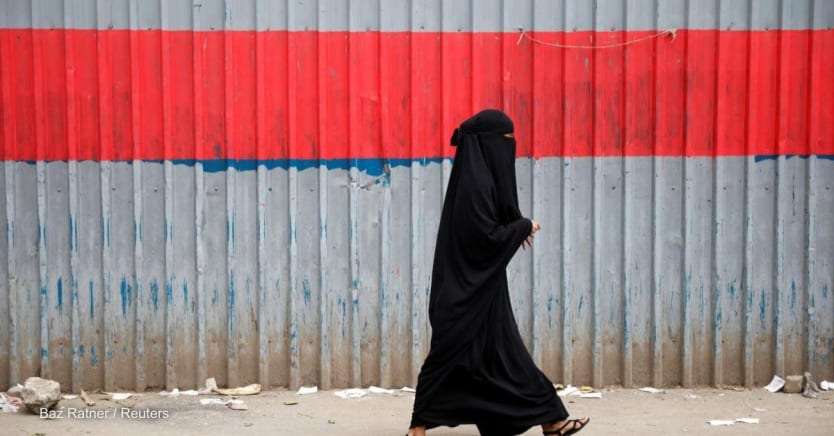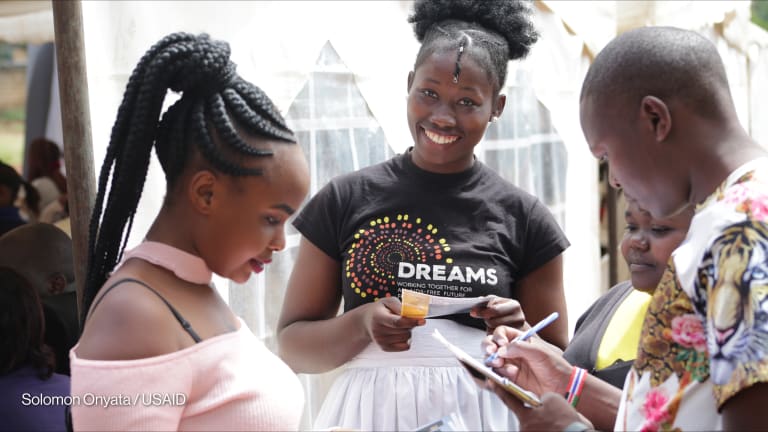
The Kenyan government failed to prevent gender-based violence or ensure access to services for survivors during the COVID-19 pandemic, according to a report by Human Rights Watch. This included sexual abuse, child marriage, abandonment without support, female genital mutilation, and physical abuse. Those living in poverty faced higher risks.
Sign up for Devex CheckUp
The must-read weekly newsletter for exclusive global health news and insider insights.
The report, published Tuesday, said the failures of the government included not providing timely access to quality health care, including emergency sexual, reproductive, and psychosocial care, as well as protection services and financial assistance. Crimes were also not properly investigated or prosecuted.
This failure included not prioritizing and including “critical early warning, detection, data collection, and protection measures in national and county-level contingency plans and budgets for containing the Covid-19 pandemic,” the report said.
“This failure contributed to an increase in cases of gender-based violence,” said Agnes Odhiambo, senior women’s rights researcher and head of the Nairobi office at Human Rights Watch, during a press briefing.
At the onset of the pandemic, the Kenyan government announced a series of lockdown measures, including movement restrictions, a curfew, and the closure of schools and some businesses. Jobs in the informal sector such as cleaning homes, selling food, and sex work, that disproportionately employ women, were impacted heavily by the lockdowns, Odhiambo said. Women who lose jobs can become solely dependent on male partners, and can sometimes be subject to a power imbalance that can lead to abuse.
“If you don’t have money, it’s not very likely that you can escape an abusive situation,” she said.
“Women were telling us: In such an environment how do I get out of my house and get help? Because I’m leaving my abuser to get beaten and locked up by the police.”
— Agnes Odhiambo, senior women’s rights researcher and head of the Nairobi office, Human Rights WatchWhile the government responded to the pandemic with a COVID-19 cash transfer program, it was “gender blind,” Odhiambo said — not including survivors of gender-based violence as part of the eligibility criteria.
Girls out of school also faced heightened levels of sexual violence.
A national gender-based violence hotline found a 301% increase in calls from women and girls in the first two weeks of the lockdown between March and April 2020. The National Crime Research Center reported an increase of 87.7% of gender-based violence cases between April and June 2020. Many of the crimes happened in homes or communities, with the perpetrators being close family members or neighbors.
One of the girls the authors spoke with was held captive for four days while a man assaulted her. Another said her husband beat her “because he knew I couldn’t go anywhere.”
The country has a “severely limited” number of shelters for survivors, which are under-resourced and understaffed — lockdowns meant fewer staff and reduced numbers of survivors that could stay there. During the lockdowns in 2020, the government didn’t include GBV service providers, such as those that worked at shelters, safehouses, or operated hotlines among those considered “essential workers” who were exempt from curfew and movement restrictions.
The government should have anticipated increases in gender-based violence and acted proactively, according to the report, because there has been a history of elevated violence towards women and girls during crises in Kenya, including post-election violence. Research has found that “Kenya’s current government structures and policies are inadequate to respond effectively to violence against women and girls during emergencies or other widespread unrest,” the report said.
The majority of survivors interviewed did not report the crimes due to skepticism they would receive support or the belief they would have to bribe the authorities. Kenyan police and other state security agents have also been implicated in many rape cases — “particularly during times of crisis” — and have not faced justice, it said. HRW said “officers have stigmatized GBV survivors, are negligent when dealing with GBV cases, and lack adequate training to deal with GBV.”
“Women were telling us: In such an environment how do I get out of my house and get help? Because I’m leaving my abuser to get beaten and locked up by the police,” Odhiambo said.
For those interviewed who did receive health and legal support, it was “inadequate,” the report said, and they faced many challenges to receive it, namely financial.
The government’s efforts towards responding to gender-based violence increased since the beginning of the pandemic, according to the report.
In March, during the country’s third wave of the pandemic, when the government announced new restrictions, it exempted GBV service providers, such as those that worked at shelters from curfews and movement restrictions.
While the government increased its offering of hotline services, these programs were confusing, not well-coordinated and staffed by people who weren’t properly trained, Odhiambo said.
This op-ed discusses the need to build an infrastructure for the emergency response to gender-based violence. The author, a public health social worker, outlines the critical steps to get there.
“This was a good service, this was a good response, but because of poor implementation it did not really help as many people as it was supposed to help,” she said.
Odhiambo describes the increase in the government’s response as “too little, too late.” The shelters are still overwhelmed, under-resourced, and most are run by NGOs, she said.
While the report focuses heavily on the lockdown phases of the pandemic, researchers said they don’t know yet if levels of violence have since reduced as society has opened up.
Researchers call on increased budgeting at the national and county levels for gender-based violence, training of service providers, as well as proper planning and implementation of programming to protect women and girls during crises.
“There is a real lack of political will to address gender-based violence. You have the president talking, asking communities to end violence, such as female genital mutilation, but political commitment has to come with resources and proper planning. Otherwise, it just becomes rhetoric,” Odhiambo said.
HRW is calling upon the government to develop and implement a GBV strategy that adequately protects women ahead of the 2022 general elections.









